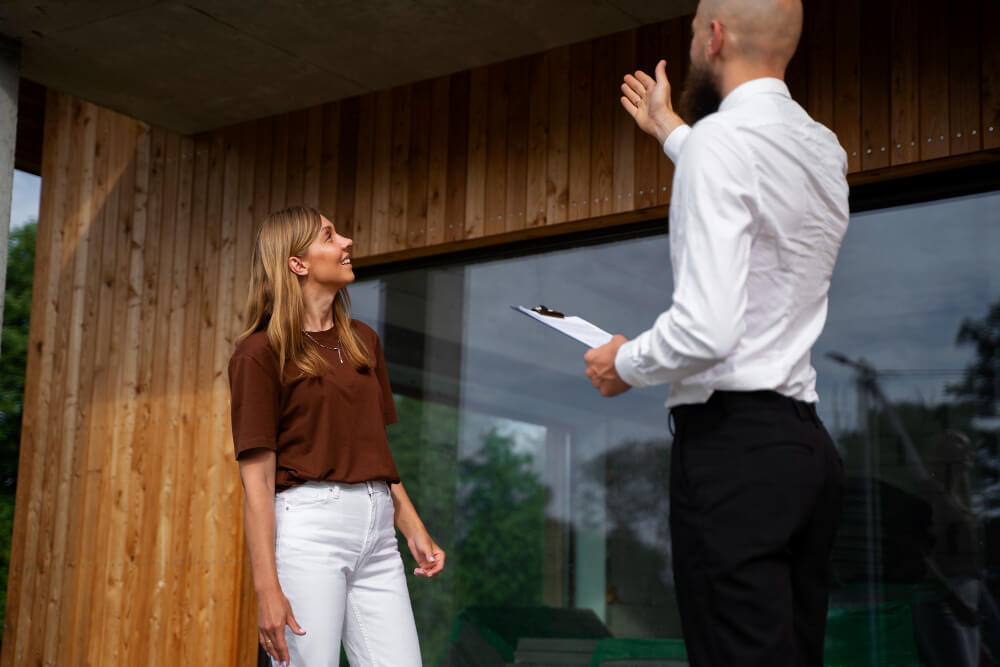If you’re a tenant in affordable housing, it’s essential to know your rights and responsibilities, especially when it comes to landlord inspections. Landlords are allowed to conduct property inspections, but they must adhere to certain guidelines and respect your privacy. In the United States, the Fair Housing Act protects tenants’ rights, ensuring that landlords don’t discriminate and that inspections are carried out within the confines of the law.



In this blog, we will discuss what a landlord can check during an inspection, with a focus on affordable housing, while considering the guidelines set by the Fair Housing Act.
Understanding the Fair Housing Act
The Fair Housing Act, enacted in 1968 and amended over the years, prohibits housing discrimination on the grounds of race, color, national origin, religion, sex, familial status, and disability. This act is crucial for tenants in affordable housing, as it protects their right to fair treatment in all housing-related activities, including inspections.
What Can A Landlord Check During an Inspection?
- General Property Condition: Landlords can inspect the general condition of the property, including common areas, to ensure it’s well-maintained and safe for all tenants. This includes checking for structural issues, electrical problems, and plumbing concerns.
- Safety and Code Compliance: Landlords can inspect the property to ensure it complies with local building and safety codes. This means checking for hazards, such as faulty wiring, fire hazards, or other safety concerns.
- Repairs and Maintenance: Landlords can inspect the property to identify necessary repairs or maintenance tasks. This helps maintain the quality and habitability of the dwelling. They can also check for damage caused by the tenant’s negligence.
- Pest Control: Landlords can inspect for pests and infestations, as it’s their responsibility to maintain a pest-free living environment. Regular pest inspections and treatments may be part of their duties.
- Emergency Repairs: Landlords can conduct inspections in response to emergency repair requests. This ensures immediate attention to critical issues like water leaks, heating problems, septic tank damage, or electrical failures.
- Inspections Before Move-In or After Move-Out: Landlords typically perform inspections before a new tenant moves in and after a tenant vacates. These inspections help document the condition of the property and any changes that may have occurred during the tenancy.
- Compliance with Lease Terms: Landlords can inspect to verify that tenants are adhering to the terms of the lease agreement. This may include checking that the maximum occupancy limit is not exceeded and that there are no unauthorized pets.
- Health and Safety Inspections: In some cases, landlords may conduct health and safety inspections to ensure that the property remains a safe and healthy environment. This can include ensuring proper ventilation and addressing mold or lead-based paint issues.
Important Considerations
While landlords have the right to conduct inspections, they must do so within the bounds of the Fair Housing Act. Here are some important considerations:
- Notice: Landlords are generally required to provide reasonable notice before conducting a non-emergency inspection, typically 24 to 48 hours. Emergency inspections can be conducted without prior notice.
- Privacy: Inspections should respect the tenant’s privacy. Landlords should not engage in intrusive searches or overly frequent inspections.
- Non-Discrimination: It is essential for landlords to adhere to the principle of non-discrimination during inspections. They must not differentiate or show bias based on race, color, national origin, religion, sex, familial status, or disability. It is of utmost importance that all tenants are treated with equality and fairness.
- Reasonable Frequency: Landlords should conduct inspections at a reasonable frequency. Excessive inspections can be considered harassment.
Conclusion
Tenants in affordable housing have rights under the Fair Housing Act that protect them from discrimination and ensure that property inspections are conducted fairly and within the law. While landlords can check various aspects of the property, they must do so with respect for privacy and adhere to the guidelines of the Fair Housing Act. It’s essential for both landlords and tenants to be aware of their rights and responsibilities to maintain a harmonious and lawful landlord-tenant relationship in the realm of affordable housing. To get the free webinar training for such related topics explore our website and register for the free webinars.
FAQs:
- What is the purpose of a landlord inspection? What are they looking for during the inspection?
The purpose of a landlord inspection is to assess the condition of a rental property and ensure that it is well-maintained and compliant with the terms of the lease agreement. Landlord inspections serve several key objectives:
- Property Maintenance: Landlords want to ensure that the property is being adequately maintained by the tenants. This includes checking for any necessary repairs, identifying potential issues, and ensuring that the property is in good overall condition.
- Compliance with Lease Agreement: Landlord inspections help verify that tenants are adhering to the terms and conditions outlined in the lease agreement. This may include rules about pets, smoking, or other specific provisions.
- Safety and Security: Inspections are conducted to ensure the safety and security of the property. Landlords may check for potential hazards, such as faulty wiring, gas leaks, or other safety concerns that could pose a risk to the tenants or the property.
- Identifying Repairs or Maintenance Needs: Landlords use inspections to identify any necessary repairs or maintenance tasks that may be required. Addressing these issues promptly helps prevent small problems from turning into larger, more costly issues over time.
- Assessment of Property Value: Regular inspections allow landlords to assess the overall value of their property. This can be essential for making informed decisions about property improvements, renovations, or potential rental adjustments.
During a landlord inspection, landlords typically look for the following:
- General Cleanliness: They check if the property is being kept clean and tidy, both indoors and outdoors.
- Condition of Appliances and Fixtures: Landlords inspect the condition of appliances, plumbing fixtures, electrical systems, and other amenities provided with the property.
- Evidence of Damage: They look for any signs of damage to walls, floors, ceilings, doors, or windows. This includes both accidental and intentional damage.
- Safety Hazards: Inspections involve checking for potential safety hazards, such as exposed wiring, trip hazards, or issues with fire safety equipment.
- Compliance with Lease Terms: Landlords ensure that tenants are following the rules outlined in the lease agreement, such as restrictions on smoking, pet ownership, or any other specific conditions.
In summary, landlord inspections are a proactive measure to maintain the property’s quality, safety, and value, and to ensure that tenants are meeting their responsibilities outlined in the lease agreement.
- I have my first landlord inspection tomorrow, what should I expect?
If you have your first landlord inspection tomorrow, here’s what you can generally expect:
- Notification: Landlords typically provide advance notice before conducting an inspection. This allows you some time to prepare and ensure that the property is in good condition.
- Be Prepared: Clean and tidy up your living space. Pay attention to general cleanliness, organization, and overall order in the property. This includes both indoor and outdoor areas.
- Address Repairs: If you’re aware of any maintenance issues or repairs that need attention, try to address them before the inspection. This demonstrates responsibility and consideration for the property.
- Check Lease Agreement: Familiarize yourself with the terms of your lease agreement. The landlord will likely assess whether you are complying with the stipulations outlined in the lease, such as rules regarding pets, smoking, or other specific conditions.
- Appliances and Fixtures: Ensure that all appliances and fixtures are clean and in working order. This includes checking that light bulbs are functioning, plumbing is not leaking, and appliances are in good condition.
- Security and Safety: Make sure that the property is safe and secure. Address any potential safety hazards, such as loose wiring, trip hazards, or fire safety concerns.
- Be Present (if required): Some landlords may prefer that you are present during the inspection, while others may conduct it independently. If your presence is requested, be cooperative and respectful during the process.
- Communication: If you have any concerns or questions, don’t hesitate to communicate with your landlord. Being transparent about any issues or challenges you may be facing can help foster a positive landlord-tenant relationship.
Remember that landlord inspections are a standard part of renting a property and are intended to ensure that both the tenant and landlord are fulfilling their respective responsibilities. Approach the inspection with a proactive mindset, and use it as an opportunity to maintain a positive relationship with your landlord.
- Can a landlord look in your personal space, such as closet cabinet refrigerators, while doing inspections?
In general, a landlord is typically allowed to inspect common areas of a rental property and areas that are specified in the lease agreement as long as they provide proper notice and have a valid reason for the inspection. However, when it comes to personal and private spaces like closets, cabinets, and refrigerators, the rules may vary based on local laws and the terms outlined in the lease agreement.
Here are some general guidelines:
- Common Areas: Landlords usually have the right to inspect common areas, such as living rooms, kitchens, and bathrooms. They may check for maintenance issues, safety concerns, or any violations of the lease agreement.
- Personal Spaces: The extent to which a landlord can inspect personal spaces may depend on the lease agreement and local laws. Some leases may explicitly grant the landlord the right to inspect certain personal areas, while others may not.
- Privacy Laws: In some jurisdictions, there are privacy laws that protect tenants from invasive inspections. Landlords may not have the right to inspect certain private spaces without the tenant’s explicit consent, especially if it doesn’t relate to health or safety concerns.
- Notice Requirements: Landlords are generally required to provide advance notice before conducting an inspection. The notice period is often defined by local laws and the terms of the lease agreement.
- Reasonable Inspections: Landlords must have a valid reason for the inspection, such as ensuring the property is well-maintained, addressing a specific issue, or verifying compliance with the lease terms. Routine inspections for no reason may not be considered reasonable.
It’s crucial to review your lease agreement and familiarize yourself with local tenant rights and privacy laws. If you have concerns about the extent of the inspection, you may consider discussing it with your landlord or seeking advice from a local tenant’s rights organization. Communication with your landlord can help clarify expectations and ensure that both parties are aware of their rights and responsibilities.
- Can a landlord inspect a tenant’s guests?
In general, a landlord typically does not have the right to inspect or monitor the activities of a tenant’s guests within the tenant’s rented living space. The lease agreement governs the landlord-tenant relationship, and it usually outlines the terms and conditions regarding the use of the property.
Here are some key points to consider:
- Tenant Privacy: Tenants have a reasonable expectation of privacy within their rented living space. Landlords are generally limited in their ability to intrude on this privacy without a valid reason, and routine inspections of guests are usually not considered reasonable.
- Lease Agreement: The lease agreement is a crucial document that defines the rights and responsibilities of both the landlord and the tenant. If the lease agreement includes specific clauses about guests, these should be followed. However, it’s uncommon for leases to grant landlords the authority to inspect or monitor the activities of a tenant’s guests within the tenant’s private space.
- Guest Policies: While landlords may have the right to set policies regarding guests, these policies typically focus on issues such as the duration of a guest’s stay, the number of guests allowed, and ensuring that guests do not disrupt the quiet enjoyment of other tenants. They generally do not grant the landlord the authority to inspect the activities of guests within the tenant’s dwelling.
- Local Laws: Tenant rights and landlord responsibilities can vary based on local laws and regulations. It’s essential to be aware of the specific tenant protections provided in your jurisdiction.
If a landlord wishes to address concerns related to a tenant’s guests, it is advisable for them to do so within the bounds of the lease agreement and applicable laws. Communication between the landlord and tenant is key, and any restrictions or expectations related to guests should be clearly outlined in the lease agreement to avoid misunderstandings. If there are concerns, tenants may seek guidance from local tenant advocacy groups or legal professionals familiar with housing laws in their area.




